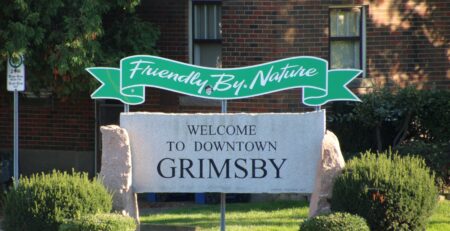In an effort to help non-lawyers understand the court process, and response to many emails inquiring about our lockdown challenges, the Justice Centre would like to answer some common questions.
Alberta Lockdown Challenge
With regards to the Alberta Charter challenge against government lockdowns, the Justice Centre applied for an injunction on December 21, 2020 as a beginning step in the larger legal action.
No date has been set to hear the Charter challenge, but it is expected in February 2022.
There was a delay in what was scheduled to be a fall 2021 hearing, Shortly before the trial was to commence on September 20, Counsel for Alberta requested another adjournment. The government’s lawyers claimed that Dr. Hinshaw was simply too busy “managing” the “Fourth Wave” to come to court. Lawyers for Alberta claimed on September 16, 2021 that due to the “escalating crisis” Dr. Hinshaw and a second witness, AHS official Deb Gordon, could not testify, because both needed to be “available around the clock until further notice, in order to protect the health care system.”
The Justice Centre has now learned that, upon the Alberta government obtaining the adjournment, Dr. Hinshaw booked a three-day vacation, including the very days she was scheduled to testify in court.
The expert evidence presented by the Justice Centre in this legal challenge is in affidavit form with exhibits, totaling more than 500 pages and includes the affidavits of:
A respected, retired Alberta doctor and former surgeon
An expert report from a University Professor with a PhD in Global Health Research
An expert report from David Redman, former Executive Director of the Alberta Emergency Management Agency, retired Lieutenant Colonel, with over 25 years military experience, with vast experience in logistics and formulating plans to deal with a variety of emergencies, including pandemics.
In addition to these experts for the injunction, the larger Charter Challenge to be heard in 2022 includes additional evidence from:
An Alberta doctor and Professor of Pathology and Laboratory Medicine
Dr. Jay Bhattacharya -Professor of Medicine at Stanford University and research associate at the National Bureau of Economics Research. He directs Stanford’s Center for Demography and Economics of Health and Aging and is Co-author of the Great Barrington Declaration.
This legal action also includes challenging the validity and reliability of PCR tests.
Manitoba Lockdown Challenge
The Manitoba Lockdown challenge began with an initial hearing on February 9, 2021 in Winnipeg, on a challenge to the constitutionality of the Public Health Act delegating broad authority to the Chief Provincial Health Officer to make Public Health Orders.
The Charter Challenge took place over eight days beginning April 19, 2021. This part of the lawsuit challenges Manitoba’s lockdown measures as unjustified violations of various Charter freedoms. This legal action also includes challenges the validity and reliability of PCR tests.
The Manitoba action contains an expert report for the Justice Centre authored by world-renowned Stanford Professor Dr. Bhattacharya and more than 2000 pages of peer-reviewed science and government data we have entered into evidence before the Court.
Two concurrent decisions of Chief Justice Joyal of Manitoba Court of Queen’s Bench upheld government lockdown policies. The first Decision held that the authority given to Chief Provincial Public Health Officer Dr. Brent Roussin was constitutional. The second Decision held that the Manitoba Government’s lockdown restrictions were justified in their violations of the Charter– freedoms of conscience, religion, expression and peaceful assembly. Chief Justice Joyal also found that there had been no unconstitutional violations of the Charter rights to liberty, security of the person, and that there was no violation of equality rights on lockdowns that saw stores restricted to selling only goods the government deemed essential and churches closed for worship.
The onus was on the Manitoba Government to justify its restrictions on Charter rights and freedoms as being reasonable, necessary, and beneficial.
One of the crucial issues discussed in this trial was the operation and reliability of the Polymerase Chain Reaction (PCR) test that is used by governments across Canada, including the Manitoba Government, to diagnose Covid and measure its spread. Manitoba’s expert microbiologist, Dr. Jared Bullard, admitted that the positive PCR does not diagnose whether someone has Covid-19, but rather is able to determine that a patient has remnants of SARS-CoV-2 in their nose which may have been there for up to 100 days. He acknowledged that a positive case could be someone who has not been contagious with Covid-19 for three months.
The action contended that Manitoba, Dr. Brent Roussin as Chief Public Health Officer, and Dr. Jazz Atwal as the Acting Deputy Chief Public Health Officer, failed to consider the collateral social and health costs of locking down society. The Applicants contended that the Public Health Orders which restricted religious gatherings, and indoor and outdoor gatherings could not be justified by section 1 of the Charter.
At 292 of the decision by Chief Justice Joyal, he stated, “In the context of this deadly and unprecedented pandemic, I have determined that this is most certainly a case where a margin of appreciation can be afforded to those making decisions quickly and in real time for the benefit of the public good and safety.”
He added, “…determination of whether any limits on rights are constitutionally defensible is a determination that should be guided not only by the rigours of the existing legal tests, but as well, by a requisite judicial humility that comes from acknowledging that courts do not have the specialized expertise to casually second guess the decisions of public health officials…”
An appeal is being considered.
BC Challenge to Provincial Health Orders
On January 8, 2021, the Justice Centre filed a constitutional challenge on behalf of three churches and four individuals against restrictions on public protest and the prohibition on in-person worship services in Public Health Orders issued by BC Provincial Health Officer Dr. Bonnie Henry.
In response, the BC government filed an injunction application, targeting the three churches who filed the court challenge. On February 17, the Court denied the government’s request for an injunction.
For the British Columbia challenge to provincial health orders in which we represent churches and individuals, the Justice Centre provided the Court with over 1000 pages of expert evidence, including sworn testimony from an experienced and credentialed Epidemiologist and former Chief Provincial Medical Officer of Health, as well as from an Infectious Disease Specialist.
Chief Justice Christopher Hinkson of the Supreme Court of British Columbia ruled in favor of the Justice Centre’s clients on March 18, 2021, to strike down Public Health Orders banning outdoor protests but dismissed disappointed the challenge to the BC Government’s prohibition on in-person religious gatherings.
Regarding the Applicant churches, Chief Justice Hinkson found that Dr. Henry’s Orders infringe the fundamental freedoms of religion, speech, assembly and association, but ruled that the infringements are justified. The Chief Justice found that Dr. Henry was owed deference to her decision-making and was not required to be correct in making her orders but only needed to have acted in a reasonable range of alternatives.
The Justice Centre is appealing the BC Court decision to deny churches the right to hold in-person gatherings for worship.
A Decade of Fighting for Freedom
The Justice Centre is entirely independent and committed to fighting for the freedoms of all Canadians. We are not associated with any other groups or organizations, cannot be influenced, and receive no government funding. Our lawyers and staff are deeply committed to fighting for the freedom of Canadians. With a 10-year history of fighting for the constitutional freedoms of Canadians, and many successes (see Concluded Cases, and Out of Court Victories), our entire team has very carefully targeted legal strategies taking into account how the court system works, the legal arguments that must me made to successfully advance a Charter challenge, and we will continue to challenge these unconstitutional lockdowns.
Appeals
Not all court cases are won at the lower court level. At times, the Justice Centre does and must appeal a decision to a higher court, such as the Appeal Court of the province, to achieve a successful removal of restrictions on Charter freedoms. This is expected and is part of the legal process. Court proceeds slowly, and some matters are complex and need to be heard at a higher level of Court.








